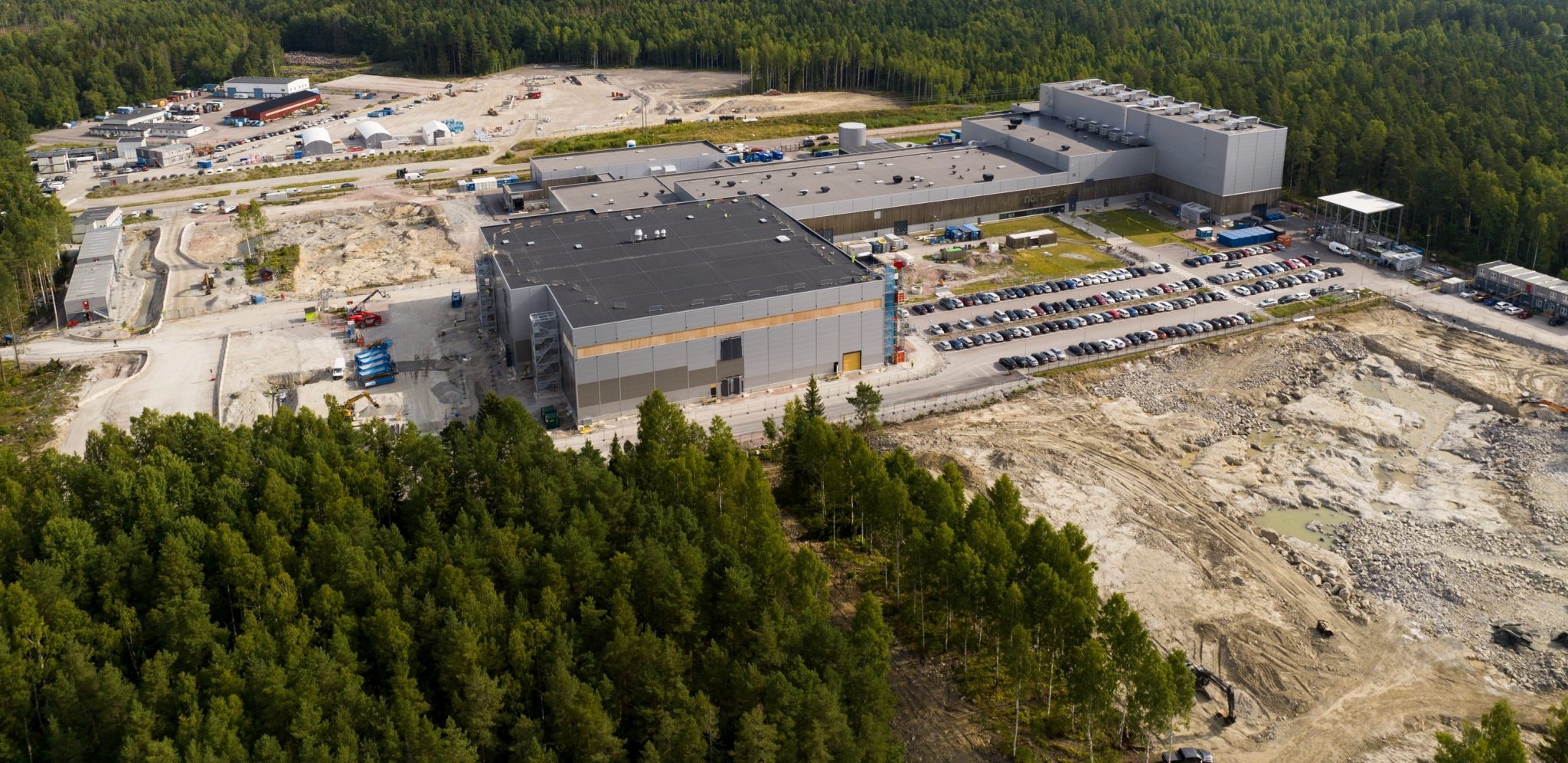Swedish gigafactory company Northvolt’s bankruptcy last week rounded off a gloomy year for many of Europe’s deeptech darlings.
German flying taxi company Lilium, which has raised $426m, filed for insolvency in October after failing to secure state backing. It followed the UK’s one time-unicorn electric van maker Arrival, whose UK arm filed for administration in February.
UK chip maker Graphcore also had a rocky year; the company was sold in July for less money than the nearly $700m investors put into the business after struggling to turn VC dollars into revenue.
Each of the companies face their own unique challenges, but together show the struggles of scaling and entering production in Europe: a continent with less capital than the US and less access to a cheap supply chain than China.
It’s left investors questioning if the companies would have fared better if they’d chosen to scale up elsewhere.
“You wonder if the capital story would have been different, had [Northvolt, Lilium and Graphcore] moved the main operations to the US, where deeptech scaleups are able to raise several billions in capital once they hit product market fit,” said deeptech-focused investor Francesco Perticarari in a LinkedIn post.
Funding gap
While there is some scepticism among VCs that Europe has a growth funding gap, many others say there is — and it’s hampering success in the region’s deeptech sector.
In 2021-2023, European deeptech startups picked up $54.4bn, according to Dealroom — less than a third of the $173.8bn raised by those on the other side of the Atlantic in the same period.
Graphcore founder and CEO Nigel Toon told reporters the “missing ingredient” for his company was the “scale and level of investment”.
“We got to 500 people and we were competing against companies that had tens of thousands working on this stuff,” he said, as the company officially announced its acquisition by SoftBank. “We’ve been successful in raising capital for the business — but the amount of capital we’ve had access to is tiny when compared to other major players in the space.”
By comparison, chipmaking giant Nvidia — which Graphcore was once touted as a potential rival to — made $35bn revenue in Q3 of this year.
Most will agree the ‘gap’ is felt primarily at the later stages. Atomico’s 2024 State of European Tech report found that Europe has created more tech startups than the US every year for the past decade and very early-stage funding is similar on both sides of the Atlantic.
“Europe has incredible scientists, more (and cheaper) technologists than the US,” says Luke Alvarez, founder of VC firm Hiro Capital, pointing to the Atomico report. “But at the growth stage, where you need VCs who can write €30m-100m+ tickets in fast-growing businesses that are loss making and high risk, there is a big gap,” he adds.
Struggles commercialising
Raising capital is one thing, taking a product to market and delivering revenue is another.
Graphcore never managed to get anywhere near the $1bn revenue goal that Toon projected for 2024, back in 2019. Part of that was down to Graphcore’s customer-facing software being hard to use, former employees told Sifted in 2023.
One former marketer said that Graphcore was a “very hardware-centric company and had a bit of a homebrew approach to software”. Another former employee who worked in the machine learning team said that software issues were to blame for the startup’s landmark deal with Microsoft — that would see it supply the US tech giant with chips — falling through.
The problem’s not unique to Graphcore, says Nathan Benaich, general partner at Air Street Capital.

“If you look at the high profile European tech failures of the past year, they were incredibly well-capitalised — but many of them focused too much on research and IP, while underinvesting in design and product,” he tells Sifted. “If you treat your customer as an after-thought or execute slowly, you’re unlikely to succeed.”
Lilium is also yet to deliver to customers and meet its revenue targets.
It raised $114m from mostly private investors in May this year, amid ongoing talks with the German government for a €100m loan. Those talks fell through in early October and the company declared bankruptcy shortly after.
One investor tells Sifted that Lilium continually missed key targets it laid out when it listed on the Nasdaq via a SPAC in 2021, which might explain why investor sentiment soured — its share price dropped 93% since listing — and it was unable to raise fresh capital ahead of imminent bankruptcy.
Those targets included achieving revenue of €240m by the end of 2024 and reaching profitability by the end of 2025. The costs of R&D, certification and scaling up its operations proved too high for the company to sustain itself.
The company could survive if a buyer or investor is found by the end of the year. Tax consulting and auditing firm KPMG was recently commissioned to find a rescuer.
Competing with the world’s manufacturing powerhouse: China
Northvolt has also faced challenges turning investment into revenue.
The company has raised $13bn in debt and equity since being founded in 2016, from deep-pocketed financiers like Goldman Sachs and strategic industry investors like Volkswagen and BMW. But the company has struggled to ramp up production at its main gigafactory in northern Sweden, falling behind on deliveries to customers.
One former employee last week speculated to Sifted that the delays were because Northvolt had spread itself too thin, focusing on factories in Canada and Germany before its Swedish plant was running at full capacity.

Northvolt needed to achieve scale to bring the cost of individual batteries down to compete with Chinese suppliers like CATL. China dominates both battery cell production and the supply chain, giving its companies the ability to undercut other suppliers on cost.
Northvolt had aimed to vertically integrate its supply chain to remove that reliance on China, building lithium refineries and recycling plants. That process is, however, extremely costly.
In Northvolt’s bankruptcy filings, two of its largest creditors are Chinese equipment and manufacturing companies, showing that, while it had hoped to end reliance on China, finding a European equivalent is, in some areas, impossible or too costly.
The Northvolt case shows that, even with a heavily capitalised balance sheet, for European companies, the cost of competing with countries with established manufacturing and supply chains remains mammoth.
Government support
The European Union appears to recognise the continent’s on the back foot when it comes to next generation industries.
In September this year, the European Commission published Mario Draghi’s report on “‘future of European competitiveness’, outlining that if Europe does not increase investment by a minimum of €750bn–800bn annually, it’ll fail to be “a leader in new technologies, a beacon of climate responsibility and an independent player on the world stage”.
European governments have already made some moves to make more capital available to deeptech startups working towards that vision.
Over its lifetime, Northvolt was promised significant amounts of capital from states and public bodies, including the German government and the European Investment Bank (EIB). However, Sifted reporting has shown that only a small fraction of that funding was ever tapped by the company because it had failed to reach the targets needed to unlock it. Sweden, where Northvolt is headquartered, ruled out stepping in to save the company.
In 2023, Germany launched a €1bn fund for climate and deeptech scaleups and a €1bn fund of funds to invest in German and European VC to unlock more growth capital. France announced plans early last year to pump another €500m into deeptech startups.
But those funds pale in comparison to those available to startups in the US. In 2022, the US announced plans to channel $369bn into green technologies with its Inflation Reduction Act (IRA) and its Chips Act is mobilising $53bn for semiconductor companies. Incoming President Donald Trump has discussed revoking the IRA, but doing so would be difficult legally, and there are questions over whether he would actually want to, given it benefits a number of Republican voting states.
Opinions are still divided about whether governments are doing enough to support deeptech.
In October, German founders and investors called on the German government to help Lilium, arguing that if Germany wants to compete globally, it needs to back startups working on promising deeptech — even if it is capital and research intensive.

Some investors in the company still see potential in the business if it were to go into more general air travel, beyond flying taxis.
“The company told us they needed a signalling of the German state behind it. If you want to build high tech and the state basically said ‘no we don’t want the technology here in Germany’ it is not signalling to other (private) investors to believe in that, especially in such a regulated industry like air travel,” says Johannes von Borries from German VC firm UVC Partners, although he acknowledges that the company relied too heavily on the promise of state support and should have had a plan B for financing.
Others have pointed out that if a company is struggling — especially one that has consistently missed commercial targets — it shouldn’t be the role of a government to bail it out.
“If €100m or even €150m could realistically push [Lilium] toward a breakthrough, private investors would be all over it,” said Christoph Gerber, founder of German delivery company Lieferando. “The fact that the private market refuses to back Lilium sends a clear message: Lilium has no shot at hitting the next milestone with that money.”
Can deeptechs succeed in Europe?
For deeptechs to thrive in Europe, the region’s tech sector needs more patient capital from private investors, says Mila Cramer, investor at early-stage VC Project A.
“European investors are used to investing in models that can prove commercial viability in the first one to three years after the company was founded,” she says, adding that deeptechs often take between seven and ten years to begin making revenue. “Expensive R&D cycles still require them to raise multiple rounds of funding before they go to market.”
Public investors can play their part too, Cramer tells Sifted, for the next generation of deeptechs. “For the state to step in in an attempt to save a company that has massively missed its targets is a discussion that is very different from the state or the EU funding opportunities for Europe to increase and maintain resilience of its most important supply chains.”
Investors looking for good news point to Cambridge, UK-founded chip maker ARM, which has seen its share price more than double since listing on the New York Stock Exchange in 2023.
And a promising new crop of deeptechs — including the autonomous driving startup Wayve, nuclear energy company Newcleo, battery startup Nyobolt and quantum startup Riverlane — are tipped for big things too.
That was once the case for all of the companies that’ve fallen on hard times in 2024, though.
“Maybe we should just accept European deeptech founders should raise seed, move to the US, and keep an R&D facility here?,” said Perticarari. “It’s not a stupid question to ask.”
It’s a move that’s already been made by some of the new crop of deeptechs German remote-driving startup Vay and nuclear fusion startup Marvel, also from Germany. Only time will tell if others follow suit.
Read the orginal article: https://sifted.eu/articles/northvolt-lilium-graphcore-europe-deeptech/


